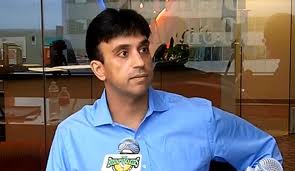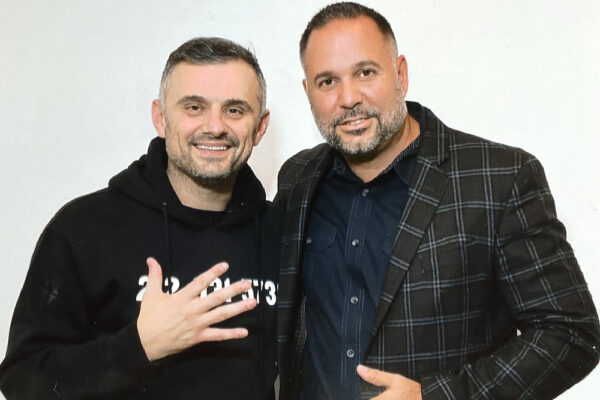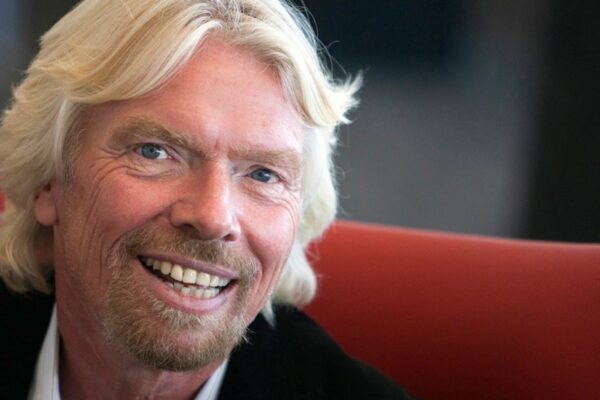
Roger Israni is President and Director of TestMasters, one of the fastest-growing test prep companies in the United States. Started in 1991, TestMasters teaches students to beat a wide variety of standardized admissions tests. I had the privilege of asking Roger questions about how he built his business into the powerful test prep industry player it is today.
Hello Roger. Welcome to entrepreneurship interviews. We are going to talk today about TestMasters, what it is, how it all started up, and what it has become. So, you started TestMasters back in 1991. What is TestMasters about?
Roger: TestMasters is focused on test preparation for standardized admissions tests, including the SAT, PSAT, ACT, GMAT, GRE, EIT/PE, LSAT, HSPT, and ISEE. We help thousands of students each year get into the schools of their choice by teaching innovative test-taking strategies to raise their test scores.
What would you say is different about TestMasters courses? What differentiates your product from that of your competitor?
Roger: Two main reasons. First, our test prep strategies are unique and some of the best in the world. We have accurate course materials: what we teach in our classes is exactly what you need to know for the test. As a result, we can guarantee some of the highest score improvements in the industry. We also have very rigorous selection and training processes for our teachers that result in a more dynamic, engaging, and effective teaching environment.
How did you decide to become an entrepreneur? What was the process?
Roger: Well, I have always had a passion for teaching and education, and I grew up in a teaching environment. (My father was a Dean in the University of Texas system). In 1991, I worked as an engineer, and I applied to teach at a community college in the evening… and they told me I wasn’t qualified. After that, I had a long conversation with my father about how all I wanted to do was teach and educate. So soon after, I started TestMasters. Entrepreneurship was just the best way for me to do what I love.
Back when you started, we didn’t have “everything online.” How has that changed the way you run your business?
Roger: Well, our online courses and our social media engagement are two things that stand out about what might be different. We also have some more advanced logistical capabilities. If we need to get course material to someone remotely, we have another option besides just a fax machine. Our teacher can check their schedules online at any moment.
Can you tell me a little more about how you use social media?
Roger: We use our social media sites to improve our customer communication. It has positively affected our brand, sales, and customer communication. Facebook is a great feedback portal for any business if you use it right.
What about blogging?
Roger: Sure. We love blogging. We have three blogs that getting good traffic results to our website: It’s Not GREek, which covers the GRE and graduates school admissions; The GMAT Project, which focuses on GMAT prep and business school preparation; and College Compass, a guide to all things college admissions. And we have accomplished some great things with our blogs. It’s Not GREel=k, for example, is the #2 site in the country for the New GRE – bringing in over 20,000 visitors per month. They’re excellent resources for students and potential students, and we are very proud of them.
From my own experience, having a job and moonlighting your own business is very demanding. If you look back, would you do things differently based on what you know now?
Roger: I think it was the right path for me. Texas Instruments was a wonderful place to start. I developed plenty of critical thinking skills and met intelligent, successful people there. We were able to achieve big accomplishments, and the job provided a financial cushion. I taught for TI engineering design seminars for TI nationwide. They have a very rigorous training process for their teachers.
But there definitely have been times when the balance has been a bit more complex to maintain. That’s why you have to implement high-efficiency management systems, so you aren’t doing everything yourself, and you don’t have to sacrifice consistency when employees exit.
As far as moonlighting, I would say everyone is different because every business is different. But any entrepreneur should expect to do a little of it at some point.
Roger Israni Wins Entrepreneur of the Year from the Asian Chamber of Commerce
When you started TestMasters, did you envision it becoming what it is today? What were your goals in the beginning?
Roger: I always had it somewhere in my mind that we could expand TestMasters. Our classes are actually global. Online students in other countries take our classes all the time. We also have plenty of classroom courses around the US and recently held a class in Belgium. So I guess, in some ways, we wound up fulfilling some of what I knew I wanted to do from the start.
On the other hand, the way technology has changed really shaped our business. You look at how test prep companies teach these days, and a lot of the more modern technology is used for business processes. Online courses are a great product.
What are the main areas of expertise for TestMasters? And who can use it?
Roger: Our classes help anyone who has to beat a test, but that category has a broad number of subcategories. Students who are applying to business school take either the GMAT or the GRE. Other graduate programs lean toward the GRE (although that is changing).
How did the crisis-affected these domains?
Roger: Some industries perform better when times are a little more turbulent. Education is consistently popular. But when times are bad, more people return to school. When more people return to school, more people take admissions tests. And when more people take admissions tests, more people need help beating admissions tests. “When times are good, business is good. When times are bad, business is better. “
How are things working exactly? It’s only online learning nowadays? Or face to face learning is still better?
Roger: We believe that different students learn better using different styles. Some students need to be able to hit the pause button. Other students need more interpersonal interaction and the ability to ask on-the-spot questions. Some want individualized, personal attention. So we provide all of those class forms. We have an online program, classroom courses, and 1-on-1 course options. We also customize courses further by several topics, hours, location, and more.
I think there is a wave of new younger entrepreneurs that start even before graduating. And there is also a current saying you don’t need advanced studies to do well in life (as our parents taught us). Is higher education still a “safety net” for “having a good life”?
Roger: It depends on what you learn. And again, if you enjoy what you do, you stand a better chance at succeeding because you will be driven and focused. But there are some very effective programs out there that help you succeed. For some professions, you have to get an advanced degree. I wouldn’t want a doctor without a medical diploma or a lawyer without a law school degree. Many of the best scientific discoveries take place on college campuses, and almost all of the modern ones are discovered by people with formal scientific training, either public or private.
Entrepreneurship is its own thing. There is a lot you have to learn that is specific to your own business. But some business programs out there are very well-known for producing success stories. Anyone who is making these decisions should do the proper amount of research.
Do you think younger generations give the same importance to education?
Roger: I think they do. This generation knows as much or more than previous ones that you need a useful set of skills to succeed. They work really hard. Our students are almost all terrific kids who want to learn and do big things globally. We require completing certain homework objectives to fulfill our point guarantee, and our students follow through on the homework and take advantage of extra opportunities to learn.
When I think about our students, I feel good about the future.
TestMasters Grooms a New Crop of Perfect Scoring Students
What has changed in the education demand in the last 20 years (besides IT)?
Roger: I think green living has gotten a lot hotter. There are more majors for it than ever before. Given technology, training in engineering and medicine are always in strong demand. We always let students know that if they enjoy what they do, they will stand a better chance at succeeding. But many of those in the liberal arts have moved into customer service jobs rather than jobs in their field.
How did TestMasters embrace social networking? Do you think Facebook has also changed education?
Roger: We started our Facebook page in 2010, and we have grown it to more than 36,000 fans. It is now one of the top referral sources for us, and we have constant communication with our customers. We bring them useful tips, tools, and strategies for beating the test and see what they want and need. Last year, we competed in #SocialMadness, a social media competition for businesses sponsored by the Business Journals. During this time, we really promoted our Facebook page, Twitter feed, and LinkedIn profile. All of our feeds grew dramatically. In fact, we competed in the finals in the competition in the Houston small business category and made it into the national bracket.
We also have a robust YouTube page and a lot more electronic PR as part of our business.
TestMasters: Test Prep Dominance
How did the internet change the way we learn? You can check on things and get informed just about everything online nowadays, but that doesn’t seem to make us smarter.
Roger: The internet has improved certain things. Obviously, there is a lot more information out there than ever before, and knowing which sources are legitimate and which sources aren’t taking a bit more work. But there is also more useful information out there than ever before.
The way it has helped us is by improving convenience, communication, and sales. When we have better engagement and better dialogue with customers, we do everything better, including finding new customers and partnerships in our field.




